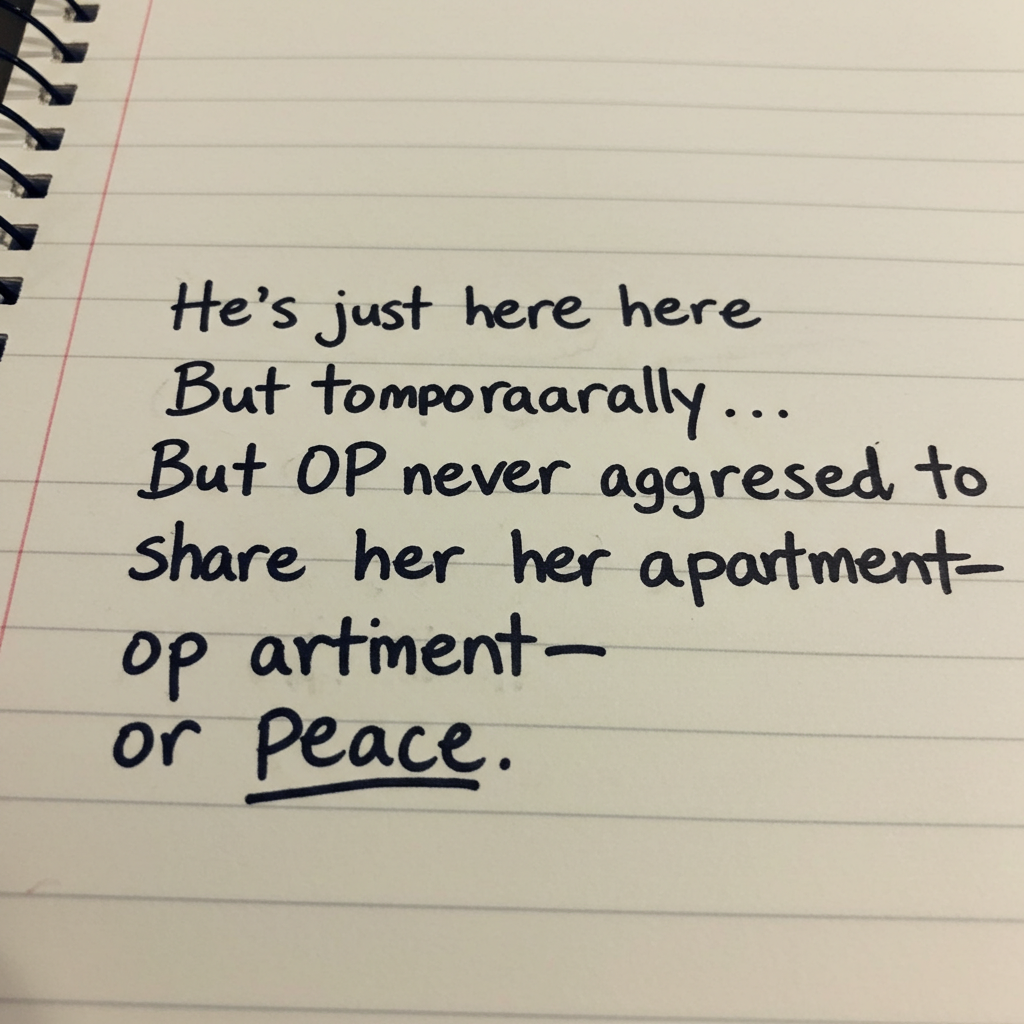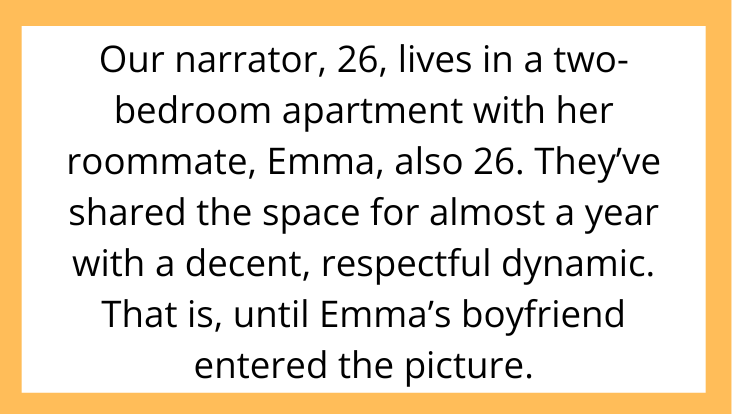AITAH for Kicking My Roommate Out After She Brought Her Boyfriend to Our Apartment Without Asking?
Roommate issues are nothing new—but what happens when trust is broken, privacy is invaded, and communication goes out the window? Today’s AITAH story dives into the gray areas of shared living, unspoken boundaries, and what happens when a casual favor turns into an unwanted arrangement.
Let’s get into it.
The Story: An Uninvited Guest

Our narrator, 26, lives in a two-bedroom apartment with her roommate, Emma, also 26. They’ve shared the space for almost a year with a decent, respectful dynamic. That is, until Emma’s boyfriend entered the picture.
Initially, he was just around on weekends. No big deal. But slowly, he started staying longer. A few days became a week. A week became indefinite. All without any real conversation.
One day, after returning from a weekend trip, the OP (original poster) walked in to find the boyfriend lounging in the living room—alone. Emma wasn’t even home.
That’s when she snapped.
Crossing the Line: From Visitor to Live-In Guest

When confronted, Emma brushed it off: “He’s just here until he finds a new place. It’s temporary.”
But OP wasn’t having it. She reminded Emma that their lease didn’t allow additional tenants, and even more importantly, this wasn’t discussed or agreed upon.
Emma accused her of being controlling and unsupportive. She claimed her boyfriend had nowhere else to go and that OP should have “a little compassion.”
Instead, OP gave Emma a firm ultimatum: He leaves, or you both do.
Emma moved out two weeks later. Now, OP is wondering—AITAH for drawing a hard line and ultimately forcing out a roommate over her boyfriend?
The Debate: Fair Boundary or Overreaction?

The Case for OP: Respecting Space and Agreement
Most Reddit users supported OP. Here’s why:
-
Lack of consent: Emma never asked. She just assumed.
-
Violation of lease: Bringing in an extra person, especially long-term, can violate housing agreements.
-
Disrespect of shared space: No one wants to share their living room, kitchen, or even bathroom with someone who isn’t paying rent and wasn’t invited.
As one commenter put it, “A roommate agreement isn’t a free-for-all. It’s mutual respect. You were right to enforce that.”
The Case for Emma: A Crisis in Disguise
A few commenters saw Emma’s side. Maybe she panicked. Maybe her boyfriend was truly in need. Maybe she thought OP would be understanding because they were friends.
“She should’ve asked,” one user wrote, “but maybe she was trying to help someone she loves. That doesn’t make her a bad person—just a bad communicator.”
Still, even sympathetic commenters agreed: communication is key, especially when it comes to shared housing.
The Bigger Issue: Roommates, Boundaries, and Emotional Entanglements

Roommate Dynamics: Business or Friendship?
Many roommate situations straddle the line between friendship and business. But when boundaries blur, problems begin. Emma’s mistake wasn’t loving her boyfriend—it was assuming her roommate would accept that love coming with a third toothbrush in the bathroom.
If you treat a roommate agreement like a casual friendship, you risk serious fallout.
Emotional Guilt and Manipulation
Emma’s guilt-tripping—accusing OP of being cold or unsupportive—can be emotionally manipulative. Just because someone is in a tough spot doesn’t mean they get to override someone else’s comfort, safety, or lease agreement.
Kindness is not compliance.
Lessons Learned: How to Handle Unwanted Roommate Surprises

-
Set Boundaries in Writing: Every roommate situation should have a clear written agreement about guests, overnights, and extended stays.
-
Communicate Early: Don’t wait until emotions boil over. Address issues the moment they become patterns.
-
Don’t Be Afraid to Say No: Your space, your rules. Protecting your peace doesn’t make you a bad person.
Final Verdict: Not the Villain

In this scenario, OP clearly wasn’t the villain. She enforced boundaries that were reasonable, fair, and previously agreed upon. Emma’s boyfriend may have had his own issues—but it wasn’t OP’s responsibility to house or support him.
Sometimes, protecting your home means risking a friendship.


